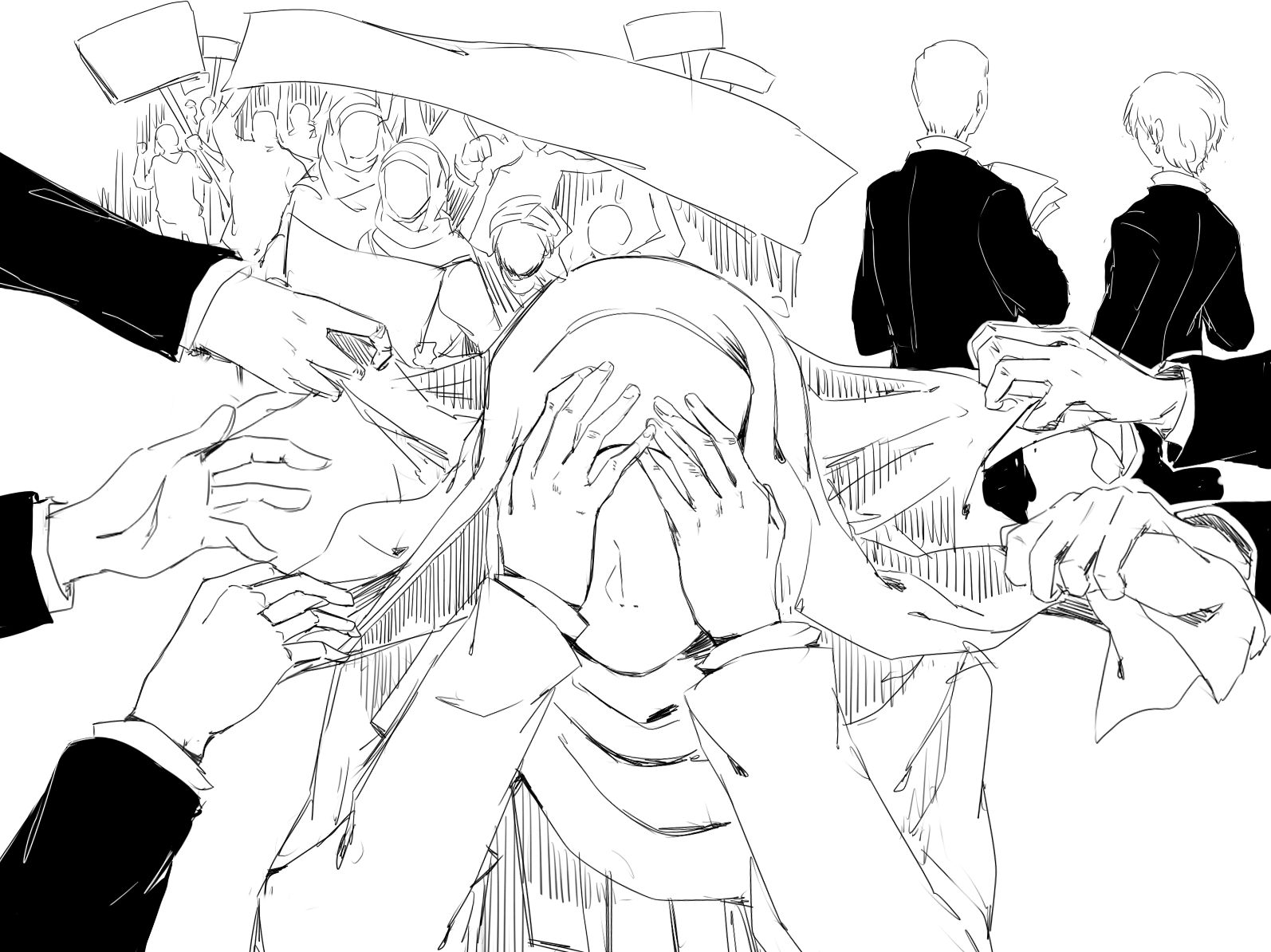A Protestant colleague of mine recently noted that the proposed charter seems to fly in the face of a crucial lesson we hope all children learn: thou shalt not judge by one’s appearance. Hopefully one doesn’t judge others at all, but especially not by what they look like. This is precisely what the proposed charter asks us to do. We are called to look at a Muslim woman wearing a hijab, a Jewish man wearing a kippah, and think “I know you; I know that you are not smart enough or moral enough to be able to serve me the same as your fellow co-religionists. Therefore I fear that you, without knowing you, are secretly working against the cohesion of society.” In Christianity, we are reminded to avoid such actions: “Judge not, lest you be judged.” In secular society the same idea takes a different form: “innocent until proven guilty.”
Certain members of the Parti Québécois (PQ)—though not all—state that they want a civil debate on the issue that does not descend into hyperbole. They are right to insist upon such a debate. They are even right to insist upon some form of secularism enshrined within the state. At their recent meeting, the Assembly of Quebec Catholic Bishops made the same point. However, the head of the Assembly, Msgr. Pierre-Andre Fournier also noted, “The more you try to have an identity by pushing back others, the more you create ghettos.”
“For by their fruits you shall know them” is part of the Christian Bible, but also functions as a general principle. In a reasonable debate about public policy questions must be asked not only about why such a proposal is being put forward, or the intended consequences, but also what might be the unintended consequences. Some of the unintended consequences of the proposed charter include the ‘ghettoization’ of immigrants—especially visible minorities—who will be targeted simply because they look different. Evidence of these consequences can be seen in the vandalization of a Turkish bath and an Anglican church on Wednesday and Thursday, simply for attracting people who appear different. These attacks have little to do with religion or a secular state. As the PQ proposes, let us look to France for an example: an aggressive secularism there has marginalized immigrants with resulting race riots that rocked that nation in 2005 and 2012. Is this one of the unintended fruits of a proposed charter that singles out certain groups of people for exclusion? A reasonable debate on the issue has to look at the possible consequences, as well as those already occurring.
Let us continue to look at France. The Stasi Commission was set up to look into the issue of religious accommodation. The French history of laicité is very different from that of Quebec, despite many trying to fit the Quebec experience into a French mould. In France, polls have consistently shown greater support for a clear separation between church and state. There, laws to this effect were proposed to formalize structures and beliefs already held by a large majority. Whether one agreed with the laws or not, one can conceive that they were founded on the principle of fostering social cohesion. In Quebec, the PQ’s charter largely ignores the recommendations of the Bouchard-Taylor Commission on Reasonable Accommodation, as well as polls that at the very least indicate that the proposed charter is not an instrument of social cohesion, but rather state-sponsored social division. A reasonable discussion must include these elements as well.
In a way, the proposed charter has indeed served as a force for social cohesion. Anyone who attended the tens-of-thousands strong rally on Sept. 14 against the charter will have seen Muslims, Sikhs, Jews, Christians, secularists, from every colour, size, and shape march together. They marched to underline the simple fact that the proposed Charter of Values does not reflect our values.
Nathan Gibbard is the Director of the Newman Centre of McGill University.
Continuing the campus conversation, hear what Stefan Novakovic, Helin Azizoghu, and Youcef Rahmani and have to say.








Pingback: A Campus conversation: The Quebec charter of values | McGill Tribune